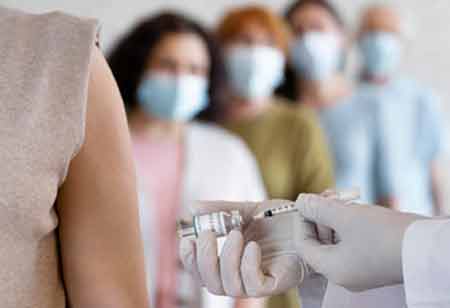The Importance of Adult Vaccination for Health
Vaccinations are crucial as we age because, with age, our bones and physique, as well as our immune system, become weak. This article highlights some of the importance of vaccinations for adults.

By
Medical Care Review | Tuesday, October 22, 2024
Stay on top of your health and well-being with exclusive feature stories on the top medical clinics and treatment centers, expert insights and the latest news delivered straight to your inbox. Subscribe today.
Fremont, CA: Vaccinations are frequently linked to early childhood; however, they remain essential as we age due to the natural decline in the strength of our immune system.
Our immune system generally becomes less effective as we age, increasing our susceptibility to infections and diseases. Vaccines are vital in enhancing our immune response and safeguarding against serious health threats.
How do Vaccines Work?
Vaccines instruct your immune system to combat pathogens without causing a natural infection. Typically, this is achieved by administering a weakened or inactivated form of a virus, bacterium, or a crucial component. As your immune system encounters these agents, it develops the ability to defend against them, thereby reducing the likelihood of illness in the future.
Tetanus (Tdap) Vaccine: Three-in-One
The bacteria responsible for tetanus infiltrate the body through wounds, cuts, or abrasions. Tetanus can result in intense muscle contractions, rigidity, and lockjaw, a condition that prevents mouth opening or swallowing. Illness occurs due to the toxins produced by these bacteria. The Tdap vaccine is a booster against three infections, protecting against diphtheria and pertussis (whooping cough). A single Tdap vaccine followed by a Td (tetanus-diphtheria) booster every ten years is sufficient to prevent these diseases. It is recommended that pregnant women receive a booster between the 27th and 36th weeks of each pregnancy.
Prevent Chicken Pox
If you have managed to avoid chickenpox (varicella) thus far, it is advisable not to take unnecessary risks. Exposure to an infected individual in the same environment can still result in contracting the virus. Adults who develop chickenpox face an increased likelihood of experiencing complications, requiring hospitalization, or even facing fatal outcomes. For instance, varicella pneumonia can be particularly severe in pregnant women and constitutes a medical emergency. Without treatment, nearly fifty percent of pregnant women suffering from varicella pneumonia may succumb to the illness.
Additionally, since chickenpox increases the risk of developing shingles, receiving the chickenpox vaccine may also provide some degree of protection against shingles. The vaccine also helps lower the risk of infection within the community, particularly for those vulnerable and unable to receive vaccination, such as pregnant women. Individuals aged 13 and older are recommended to receive two doses of the vaccine in a four—to eight-week gap.
Shingles Vaccine: Important After 60
The virus responsible for chickenpox during childhood can re-emerge in adulthood as shingles, also known as "herpes zoster." This condition is most prevalent in individuals over the age of 60. It is marked by a painful, red rash that has the potential to harm the eyes and lead to long-lasting pain, referred to as postherpetic neuralgia. If you develop this rash, there is also a risk of transmitting chickenpox to others. The Shingrix vaccine, which consists of two doses, is advised for individuals aged 50 and older and those aged 18 and above who are immunocompromised or immunosuppressed.







